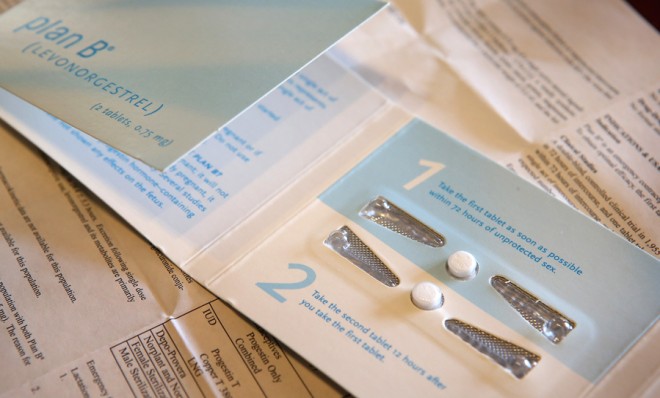Once-a-month, post-sex birth control pills could be a reality
If political opposition doesn't get in its way

A free daily email with the biggest news stories of the day – and the best features from TheWeek.com
You are now subscribed
Your newsletter sign-up was successful
A group of U.S. and Swedish researchers say a once-a-month pill to be used after sex can easily become a reality if they just overcome one hurdle: Political opposition.
In this month's Journal of Family Planning and Reproductive Services, an editorial pressing for research into "post-fertilization" contraception extols the benefits of a pill that could be taken up to a month after sexual intercourse, but warns that conservatives and anti-abortion advocates are standing in their way.
Although we currently have the "morning-after" pill as a form of emergency contraception, it must be taken within 72 hours of sex to be effective, and the sooner the better. Since the proposed method could be used for a much larger window of time, a greater number of women could utilize it. The extra time would help alleviate the problems that some women have finding the money to purchase "morning-after pills" or locate pharmacies that carry them within the three days.
The Week
Escape your echo chamber. Get the facts behind the news, plus analysis from multiple perspectives.

Sign up for The Week's Free Newsletters
From our morning news briefing to a weekly Good News Newsletter, get the best of The Week delivered directly to your inbox.
From our morning news briefing to a weekly Good News Newsletter, get the best of The Week delivered directly to your inbox.
Another advantage of such a pill is that it could act as a contraceptive for the entire previous month. "A woman could potentially use a post-fertilization method on a planned schedule only once in each menstrual cycle, no matter how many prior coital acts she had had in that cycle," the authors write. It could even be used just after a missed period.
And it wouldn't just help women. The researchers stress that "post-fertilization methods would eliminate the conceptual and logistical challenge of needing to obtain and initiate contraception before having sex, which can be daunting for both men and women."
Yet, the proposed contraception's wide window of post-coital effectiveness is what makes it controversial. Since the U.K. and the U.S. both consider pregnancy as beginning when a fertilized egg implants, a post-fertilization is skirting into what some could consider abortion territory.
Our current methods of birth control primarily work by keeping an egg and sperm apart and, thus, preventing fertilization. However, some forms, like intrauterine devices, can prevent pregnancy even after fertilization. Dr. Elizabeth Raymond, professor of gynecology at New York University and one of the co-authors, said in a podcast related to the report, "We need to stop extolling pre-fertilization contraception as a good thing, because it implies that something that works after fertilization is bad."
A free daily email with the biggest news stories of the day – and the best features from TheWeek.com
Still, any form of birth control that can prevent a pregnancy even after a missed period, won't fly under pro-life advocates radar. In fact, Norman Wells of U.K.'s Family Education Trust told the Daily Mail, "this kind of drug would effectively introduce abortion on demand by the back door."
Now, it may seem silly to already be up in arms about a contraception that doesn't actually exist yet. But, what is so frustrating to proponents is that all the current medical evidence indicates that such a pill is quite feasible with a little bit of research. Raymond told LiveScience, "The political problem has prevented us from even finding out what the scientific problems are."
Emily Shire is chief researcher for The Week magazine. She has written about pop culture, religion, and women and gender issues at publications including Slate, The Forward, and Jewcy.